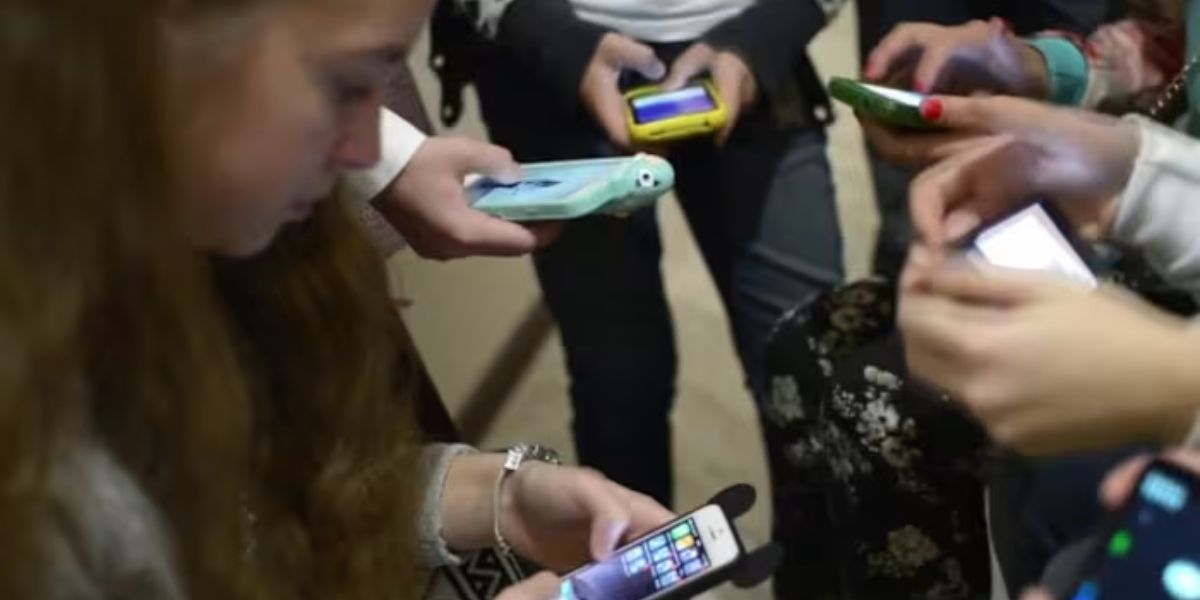Starting July 1, 2025, Florida will enforce a new school phone policy that prohibits students from using their phones during the entire school day.
This expanded phone ban will apply to elementary and middle school students and is part of an effort to reduce distractions in the classroom and promote a focused learning environment.
Additionally, the state is piloting a similar program for high school students, though it will be in place on a trial basis for now.
What Does the New Law Entail?
Under the new law, students at elementary and middle schools in Florida will be required to leave their phones off and out of sight from the moment they arrive at school until the end of the school day.
Phones must be stored in lockers, backpacks, or other designated areas, and cannot be used during class, lunch breaks, or recess.
The purpose of the policy is to create a classroom environment where students are not distracted by their devices, allowing for more focused and engaged learning. Teachers will no longer have to compete with students who are texting, playing games, or using social media during instructional time.
For high school students, Florida will implement a pilot program that mirrors the policy but with some flexibility. High school students will still have access to their phones before and after school, but the pilot aims to test the impact of restricting phone use during the school day to see if it enhances student focus and academic performance.
Why the Change?
The decision to ban phone use for the entire school day stems from growing concerns about the negative effects of smartphone use on young students.
Research has shown that excessive phone use in schools leads to distractions, decreased academic performance, and increased social anxiety among students. With smartphones becoming more advanced and engaging, they can often pull students’ attention away from the classroom and onto non-educational content.
School administrators and policymakers hope that by restricting phone access during the school day, students will be better able to focus on their lessons, complete their schoolwork, and engage in more meaningful social interactions with their peers.
This shift also aligns with the broader goal of fostering a healthier school environment, where students are not constantly tethered to their devices.
How Will the Ban Be Enforced?
Florida schools are setting clear guidelines for the new policy. Teachers, administrators, and staff will be responsible for enforcing the ban during school hours.
In most schools, this will involve routine checks at the beginning of the school day to ensure that students have stored their phones properly. Any student caught using their phone during class time could face disciplinary action, ranging from a warning to more serious consequences like detention or suspension.
There will also be exceptions to the rule for students who need their phones for medical reasons or for other urgent situations. Schools will have procedures in place to accommodate such needs, but parents will likely need to provide documentation to confirm the necessity of phone use during the day.
What Do Students and Parents Think?
The new phone ban has received mixed reactions from students, parents, and educators across Florida. Some parents and educators are supportive of the move, citing the need for students to focus on their education without the constant distraction of smartphones. Many parents express concern that their children spend too much time on their phones and that the ban will help children become more engaged in the learning process.
However, some students and parents have raised concerns about the practicality of the policy. High school students, in particular, argue that they rely on their phones for communication and information gathering, especially during breaks or free periods. For some students, smartphones are an important tool for managing their schedules or staying connected with family members.
Despite these concerns, school officials are hopeful that the policy will help create a healthier, more productive school environment for all students. For high school students, the pilot program will provide a more flexible approach, allowing the state to assess the impact of the ban before making any permanent decisions for older students.
What Are the Benefits of the School Phone Ban?
Proponents of the phone ban believe that it will lead to several key benefits:
- Improved Focus and Attention: Without the distraction of smartphones, students can devote their full attention to lessons, improving both their understanding and retention of information.
- Enhanced Social Interaction: With phones out of the picture, students may be more likely to interact with their peers face-to-face, building stronger relationships and improving their social skills.
- Reduced Cyberbullying: With restricted access to social media and messaging apps, students may be less likely to experience or participate in cyberbullying during school hours.
- Healthier Habits: Reducing screen time during the school day can help promote healthier habits and reduce the risks associated with excessive phone use, such as poor posture, eye strain, and lack of physical activity.
Looking Ahead: The Future of Phone Use in Florida Schools
As Florida moves forward with this policy, it will be important to monitor its effects. The state plans to collect feedback from students, parents, and educators to assess the impact of the phone ban on student behavior, academic performance, and overall well-being. If the results of the pilot program for high school students are positive, it could pave the way for expanding the policy statewide for older students as well.
In the meantime, the new policy signals a growing awareness about the role technology plays in the classroom and the need to strike a balance between its benefits and potential drawbacks. As schools across Florida implement the phone ban, it will be essential to keep an open dialogue with the community to ensure that the policy effectively meets the needs of all students.
Ultimately, the aim is to create an educational environment where students can focus on learning, grow socially, and thrive academically, without the constant distraction of their phones.




